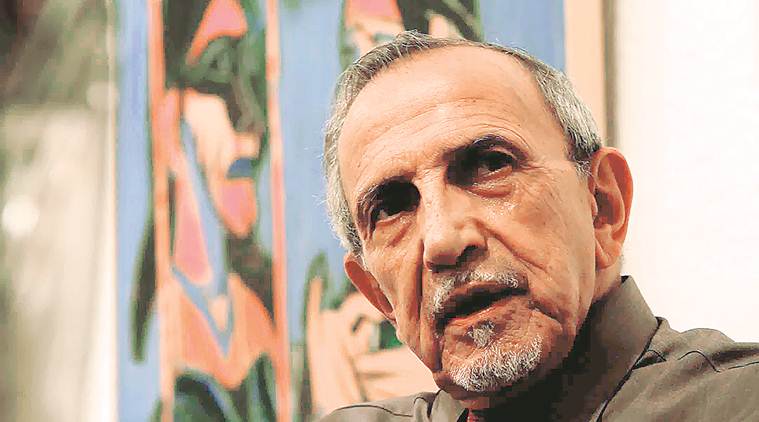 Ebrahim Alkazi passed away due to cardiac failure.
Ebrahim Alkazi passed away due to cardiac failure.
I reached Delhi a few days early for the shooting of Gandhi, to prepare myself for the role by learning to spin the charkha, speak English correctly and take elocution lessons. As my first shoot day was approaching, I was eager to meet my guru, Ebrahim Alkazi and get his blessings. I knew he didn’t like the touching-feet stuff. I got to know from Kusum Haider, my elocution teacher who had been his student as well, that he was going to be in Triveni Art Gallery. I reached there and he received me with a radiant smile.
When I was in front of him, I didn’t know what to say. I think he read my mind and knew that I was struggling with words, as always. For half an hour, we talked, mostly him. When I was leaving, he walked me to the car and opened the door like a true gentleman. Experiences like these remain with you forever.
I am where I am because of him. I had first heard of Alkazi from my father, who had seen him on stage. When I was applying for a central government scholarship to study an art form, I saw that there was space to write the names of the institution and the guru we wanted to study with. For singing, dancing and folk songs, you could name a guru. In theatre, what could we say? My father said, “Write NSD in the space for institution and, under guru, write Ebrahim Alkazi.” Alkazi was heading the National School of Drama and he was there on the interview panel.
As a teacher, he wanted to show us so many things. He used to teach us Western Drama, from William Shakespeare to John Osborne and Tennessee Williams. He was particular about classwork and if you didn’t do your work, he would pull you up in front of the whole class. He made us experience all kinds of art. He was a painter himself. Once he took us to a national exhibition of paintings and explained to us how to see a painting. Another time, he made us study the arts and crafts of Mohenjo Daro and Harappa and the Gupta period.
In my first year, I was working on a play and there was some confusion about the character. The librarian at NSD said that Alkazi saheb goes to the open-air theatre, Meghdoot, and sits there and works so you go there during lunch and ask him about your role. That’s when I saw Alkazi’s meticulousness. He was sitting at a small table with a script. He had sharpened three-four pencils and there were four different coloured pens and a ruler and an eraser. I gathered my courage and approached him. He smiled and asked me to take a pencil and mark the script as he instructed. I took out my pencil and saw that it was blunt and wouldn’t write. Sir said, “Rohini, your mind is as blunt as your pencil… Sharpen it!” This was a lesson for life. You have to be alert, observant, absorbent.
It was fun watching him direct a play — his cheeky comments, how he directed actors’ movements on stage and handled crowd scenes, spectacular sets and space. We performed in the open-air theatre as well as monuments such as Purana Qila.
He had a mixed personality as a teacher. He could scold you or playfully tell you your mistakes. I was playing Sultan Razia and had a habit of twitching my wrist when I took a movement. One day, during rehearsal in front of the whole school, he mimicked me and I was so ashamed I corrected myself instantly. On the other hand, he was extremely caring. I was rehearsing a sword fight with Ratan Thiyam and something went amiss. The sword grazed my jawline and, though it wasn’t a deep cut, there was blood. We ignored it and went back to our practice. Alkazi saw what had happened. He shouted, “Stop”. He checked my injury, called a person and said, “Take her to a doctor and get her a tetanus injection.”
Sir, I always wanted you to come and watch at least one of my plays after leaving NSD. I wanted you to see your pupil doing well and walking on the path you showed and guided us to. It never happened. But I am sure, you were aware of every student of yours and what they are doing. Thank you for coming into my life. Thank you for being a true guru.
This article first appeared in the print edition on August 6, 2020 under the title ‘To Sir, With Gratitude’. The writer is an actress